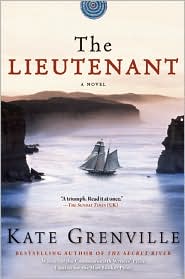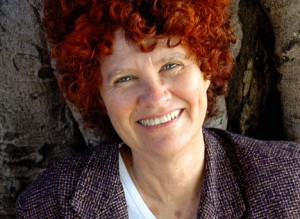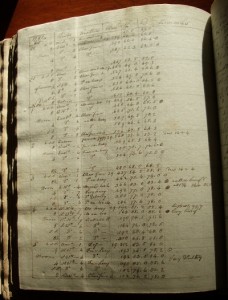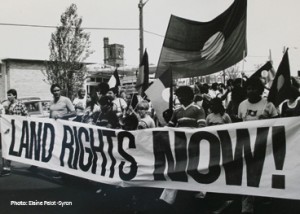“The natives were ‘brought in.’ Never mind that they were kidnapped. Violently. Against their will. They were crying, Rooke. I tried to show them we meant no harm, but they were wailing as if their hearts would break! Who will say how it really was? Tell the truth about it?”
Basin g this fine novel about the settlement of Australia’s New South Wales on the real life and notebooks made by Lt. William Dawes from 1788 – 1790, author Kate Grenville subjects the empire-building attitudes of the Crown and its representatives to careful scrutiny and creates a novel filled with conflicts and well-developed themes. New South Wales was already inhabited by an aboriginal population which had its own language and culture when a thousand British officers and prisoners, both male and female, landed their eleven ships in Sydney Cove and took over land which had been the traditional homelands of the aborigines. Demonstrating the arrogance of conquerors, these officers and officials imposed their harsh “justice” upon anyone who challenged their will and their national “destiny.” Convinced that they were superior, not equals, they introduced themselves to the exceedingly shy native population through a demonstration of power, forever losing the opportunity to communicate with a culture they regarded as inferior.
g this fine novel about the settlement of Australia’s New South Wales on the real life and notebooks made by Lt. William Dawes from 1788 – 1790, author Kate Grenville subjects the empire-building attitudes of the Crown and its representatives to careful scrutiny and creates a novel filled with conflicts and well-developed themes. New South Wales was already inhabited by an aboriginal population which had its own language and culture when a thousand British officers and prisoners, both male and female, landed their eleven ships in Sydney Cove and took over land which had been the traditional homelands of the aborigines. Demonstrating the arrogance of conquerors, these officers and officials imposed their harsh “justice” upon anyone who challenged their will and their national “destiny.” Convinced that they were superior, not equals, they introduced themselves to the exceedingly shy native population through a demonstration of power, forever losing the opportunity to communicate with a culture they regarded as inferior.

Lt. Daniel Rooke, the main character, a stand-in for the real William Dawes, was a brilliant child who experienced the “misery of being out of step with the world,” and it is Rooke’s sensitivities and differences which infuse the conflicts of the novel. Tormented by his duller peers, he enlisted in His Majesty’s Marines as a young teenager, putting his extensive knowledge of astronomy to use as a navigator and sailing to the American colonies and the Caribbean. When offered the chance to go to Australia, Rooke is on the first ship that lands in New South Wales.
Setting up an astronomical observatory on a headland above the settlement, Rooke is happily alone with his instruments and calculations all week, climbing down to base for Sunday dinner and avoiding most of the daily conflicts at the settlement. It is his friend Gardiner who first describes the capture of two aborigines, “By God, you should have heard them crying out, it would break your heart. We call them savages. But their feelings are no different from ours.” Stunned by the cruelty, Rooke realizes that an opportunity to create some sort of relationship between the Crown and the natives has been lost forever, and he can only wonder what he would have done if he had been directed to give the order to seize the two captives. He recognizes that he is in conflict with his peers at the most basic level in his attitudes toward these people . For one former military friend, “the impulse was to make the strange familiar, to transform it,” while for Rooke the objective was “to enter that strangeness and lose himself in it.”
ours.” Stunned by the cruelty, Rooke realizes that an opportunity to create some sort of relationship between the Crown and the natives has been lost forever, and he can only wonder what he would have done if he had been directed to give the order to seize the two captives. He recognizes that he is in conflict with his peers at the most basic level in his attitudes toward these people . For one former military friend, “the impulse was to make the strange familiar, to transform it,” while for Rooke the objective was “to enter that strangeness and lose himself in it.”
In clear, unadorned prose, Grenville tells of life as it was and as an impartial observer would see it, never allowing her prose to take flight into realms of fancy. Firmly grounding her narrative in the human feelings and human costs of all who were involved in this sad chapter of history, she tells an important story which questions the meaning of “justice,” especially when it is applied to alien cultures which see such justice as unadulterated cruelty. The conflicting emotions of sensitive people like Rooke, whose mission to conquer and subjugate are alien to their personal beliefs, illustrate the helplessness of those who would have changed course if it had been possible. Ultimately, Rooke is able to take the long view, however, realizing that “To understand the movements of the celestial bodies, it was necessary to  leave behind everything you thought you knew. Until you could put yourself at some point beyond your own world, looking back at it, you would never see how everything worked together.” A well-developed novel which explores the human costs to both sides of colonial conquest.
leave behind everything you thought you knew. Until you could put yourself at some point beyond your own world, looking back at it, you would never see how everything worked together.” A well-developed novel which explores the human costs to both sides of colonial conquest.
Notes: The author’s photo is from http://www.bbc.co.uk
A page from Lt. William Dawes’s meteorological record in New South Wales, from the Royal Society, appears on http://www.sydneyobservatory.com.au
Deprived of their native lands for two centuries, the aborigines agitated for return of their rights: http://www.alc.org.au/. In 1976 (further amended in 2006), the Aboriginal Land Rights Act established the process under which Australia’s aboriginal people could reclaim rights to land based on their occupations. See also: http://en.wikipedia.org
